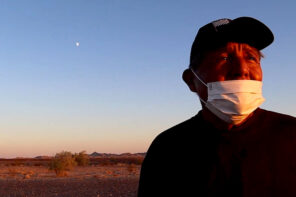Two Democratic congressmen this week introduced the “Do No Harm Act,” a proposed amendment to the Religious Freedom Restoration Act (RFRA), the once bipartisan law that’s now at the center of the culture wars. It doesn’t have a chance in hell of passing, but its introduction is an important milestone in the backlash against RFRA’s expanded use.
When it was first passed in 1993, RFRA had the support not only of religious organizations but of civil rights organizations, all of which thought the law could restore the religious freedoms they saw as impaired by a 1990 Supreme Court decision that denied unemployment benefits to an individual fired for using peyote, even though it was for a religious ritual.
The problem, according to current critics, is that the law actually went beyond the First Amendment and ushered in a new era of “extreme” religious liberty. Over the course of the past 20 years, RFRA and similar state laws have been used to grant religious individuals and institutions exemptions from laws covering child protection, anti-discrimination, land use, marriage, schools, prisons. In these areas, many of these exemptions have institutionalized discrimination against women, LGBT individuals, and others, critics say.
So this is where the “Do No Harm” amendment, sponsored by Reps. Joe Kennedy III (D-Ma.) and Bobby Scott (D-Va.), comes in. If passed, the act would prevent RFRA from authorizing legal exemptions that impose “meaningful harm, including dignitary harm” on third parties.
But the bill doesn’t propose a simple rule against harm against third parties. Rather, it “announces specific areas where it thinks those areas are most acute,” according to Nelson Tebbe, who teaches courses on constitutional law and religious freedom at Brooklyn Law School. The specific areas protected are the ones we read about most in the press: civil rights employment, health care, child labor, gender identity.
RFRA itself is a “black box” covering every federal law, said Marci Hamilton, a constitutional law professor who specializes in church/state relations. She told me the “no harm” bill is a “step in the right direction” but that it only covers a “small universe of the havoc and harm” wrought by RFRA. “There should be no religious privilege against any federal aviation law or safety law or EPA regulation,” she said.
It’s clear that the Do No Harm bill is a clear reaction (from the left) to our current historical and political moment, in which the fight between certain conceptions of religious liberty and LGBT rights has never felt more acute. It was probably written with the clear intent of being partisan, said Tebbe, adding that there’s little to no chance it will be passed by this Congress. But like me, he sees a glimmer of hope in its introduction.
“It sets a blueprint for an approach to amending RFRA that could be taken up down the line,” he said. Eventually, we might begin to hope it’ll become law.





